-
 Bitcoin
Bitcoin $108,703.4836
0.45% -
 Ethereum
Ethereum $2,576.6839
1.58% -
 Tether USDt
Tether USDt $1.0001
0.00% -
 XRP
XRP $2.2924
-0.87% -
 BNB
BNB $660.2136
0.01% -
 Solana
Solana $151.4729
-0.29% -
 USDC
USDC $1.0000
0.00% -
 TRON
TRON $0.2866
0.04% -
 Dogecoin
Dogecoin $0.1698
0.82% -
 Cardano
Cardano $0.5831
0.13% -
 Hyperliquid
Hyperliquid $37.9814
-3.97% -
 Bitcoin Cash
Bitcoin Cash $503.9489
1.93% -
 Sui
Sui $2.8994
0.74% -
 Chainlink
Chainlink $13.5429
0.38% -
 UNUS SED LEO
UNUS SED LEO $9.0693
-0.19% -
 Stellar
Stellar $0.2524
0.15% -
 Avalanche
Avalanche $18.1959
1.02% -
 Shiba Inu
Shiba Inu $0.0...01180
1.48% -
 Toncoin
Toncoin $2.7601
-0.76% -
 Hedera
Hedera $0.1606
0.96% -
 Litecoin
Litecoin $86.6105
0.26% -
 Monero
Monero $315.7691
-0.56% -
 Polkadot
Polkadot $3.3911
0.25% -
 Dai
Dai $1.0001
0.03% -
 Ethena USDe
Ethena USDe $1.0002
0.02% -
 Bitget Token
Bitget Token $4.3076
-0.05% -
 Uniswap
Uniswap $7.5901
3.66% -
 Aave
Aave $288.0954
0.35% -
 Pepe
Pepe $0.0...01002
1.64% -
 Pi
Pi $0.4578
0.09%
How to avoid phishing attacks when transferring money through Ethereum wallet?
Protect your Ethereum wallet from phishing by verifying website addresses, using strong passwords & 2FA, and meticulously checking recipient addresses before confirming transactions; never share your private keys.
Mar 25, 2025 at 06:28 am
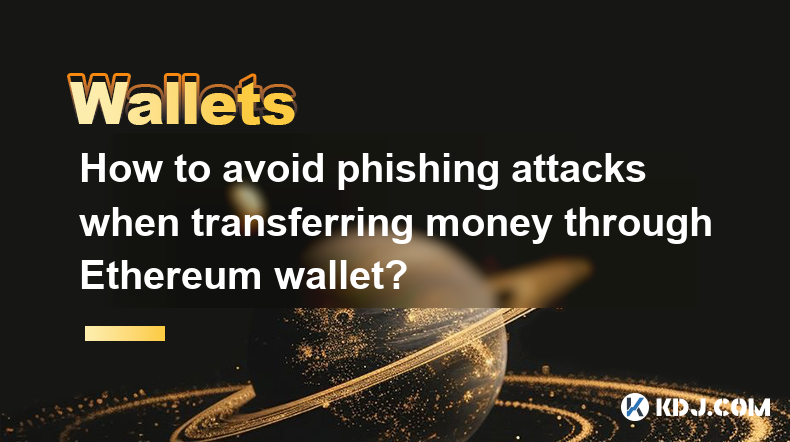
How to Avoid Phishing Attacks When Transferring Money Through Ethereum Wallet?
Ethereum, a leading blockchain platform, facilitates fast and efficient transactions. However, its popularity makes it a prime target for phishing attacks, aiming to steal users' cryptocurrency. Understanding how these attacks work and implementing preventative measures is crucial for protecting your funds. This article details strategies to safeguard your Ethereum wallet during transactions.
Understanding Ethereum Phishing Attacks
Phishing attacks exploit human error, tricking users into revealing sensitive information. In the Ethereum context, this often involves fraudulent websites or emails mimicking legitimate exchanges or wallet providers. These scams might promise lucrative rewards, request account details for "verification," or exploit urgency to pressure users into immediate action. The goal is always the same: to gain access to your private keys or seed phrase.
Identifying Suspicious Websites and Emails
Several red flags indicate a potential phishing attempt. Be wary of websites with poor grammar, misspellings, or unprofessional design. Legitimate platforms rarely use urgent or overly persuasive language. Always double-check the website address for subtle differences, like extra characters or incorrect domain names. Hover over links before clicking to reveal their true destination. Legitimate emails will use your name correctly and maintain a professional tone.
Securing Your Ethereum Wallet
Strong passwords and two-factor authentication (2FA) are essential. Use a unique, complex password for each online account, and enable 2FA whenever possible. This adds an extra layer of security, requiring a second verification code besides your password. Avoid using public Wi-Fi for transactions, as it increases vulnerability to man-in-the-middle attacks. Regularly update your wallet software to benefit from the latest security patches.
Safe Transaction Practices
Before initiating any transaction, meticulously verify the recipient's address. A single incorrect character can send your funds to the wrong wallet, irrecoverably lost. Double and triple-check the address against the intended recipient's information. Avoid using shortcuts or QR codes from untrusted sources. Always manually type the address into your wallet.
- Carefully review all transaction details before confirming.
- Never share your private keys or seed phrase with anyone.
- Only use official channels for support or assistance.
- Be cautious of unsolicited offers or promotions.
- Report suspicious activities to the relevant authorities.
Recognizing Phishing Tactics
Phishers employ various techniques to deceive users. They might impersonate support staff, promising help with a fictitious issue. They might create fake transaction confirmations, leading users to believe their transfer was successful when it wasn't. They might even manipulate social media or forums to spread malicious links. Maintaining skepticism and thorough verification are crucial in identifying these scams.
Using Hardware Wallets for Enhanced Security
Hardware wallets provide an extra layer of security by storing your private keys offline. This significantly reduces the risk of phishing attacks as your keys are never exposed to the internet. Transactions are signed offline, minimizing vulnerabilities. While hardware wallets are more expensive than software wallets, the added security justifies the investment, particularly for substantial Ethereum holdings.
Staying Informed and Updated
The landscape of cryptocurrency scams is constantly evolving. Stay informed about the latest phishing techniques and security best practices. Follow reputable news sources and security blogs for updates. Engage with the Ethereum community to learn from others' experiences and warnings. Proactive vigilance is your best defense.
Understanding Smart Contracts and Potential Risks
Smart contracts, while powerful tools, also present security challenges. Phishing attacks might involve malicious smart contracts designed to steal funds. Always audit the code of smart contracts before interacting with them. Avoid interacting with contracts from unknown or untrusted sources. Use reputable platforms and tools for smart contract verification.
Importance of Regular Security Audits
Regularly audit your Ethereum wallet's security practices. Review your passwords, 2FA settings, and transaction history. Identify any potential vulnerabilities and address them promptly. Proactive security measures significantly reduce the likelihood of successful phishing attacks. Keeping your software updated is a crucial part of this ongoing process.
Choosing Reputable Exchanges and Platforms
When using exchanges to buy, sell, or store Ethereum, choose reputable and well-established platforms with a proven track record of security. Read reviews and check their security measures before entrusting your funds. Avoid lesser-known or poorly reviewed exchanges that might have weaker security protocols, making them more vulnerable to phishing attacks.
Frequently Asked Questions
Q: What should I do if I suspect I've been a victim of a phishing attack?
A: Immediately change your passwords, disable 2FA on compromised accounts, and contact your exchange or wallet provider. Report the incident to the relevant authorities.
Q: How can I verify the legitimacy of an email or website claiming to be from my Ethereum wallet provider?
A: Check the sender's email address and website URL carefully for inconsistencies. Look for official contact information on the legitimate website and compare it to the communication you received.
Q: Are hardware wallets completely immune to phishing attacks?
A: While hardware wallets offer significant protection, they are not completely immune. Users can still fall victim to social engineering tactics where attackers trick them into revealing their seed phrase or other sensitive information.
Q: What is the best way to secure my seed phrase?
A: Write it down on paper, store it in a safe place offline, and never share it with anyone. Consider using a physical safety deposit box or other secure storage solution. Avoid digital storage, as this exposes your seed phrase to potential hacking.
Q: What should I do if I accidentally send Ethereum to the wrong address?
A: Contact the recipient immediately. Depending on the recipient's willingness and the blockchain's capabilities, it might be possible to recover your funds. This is not always successful, however. Learn from the mistake and take steps to prevent future errors.
Disclaimer:info@kdj.com
The information provided is not trading advice. kdj.com does not assume any responsibility for any investments made based on the information provided in this article. Cryptocurrencies are highly volatile and it is highly recommended that you invest with caution after thorough research!
If you believe that the content used on this website infringes your copyright, please contact us immediately (info@kdj.com) and we will delete it promptly.
- Kraken, Rear Wing, and Memecoins: A Wild Ride to the Singapore Grand Prix!
- 2025-07-09 00:50:12
- Cronos Skyrockets: Decoding the Reasons Behind CRO's Crypto Surge
- 2025-07-09 01:30:12
- Ethereum's Wall Street Love & Ruvi AI's Audit Rally: A Crypto Cocktail
- 2025-07-09 00:55:12
- Crypto Coins with Growth Potential: Top Picks for Savvy Investors
- 2025-07-09 01:35:13
- Onyxcoin (XCN) vs. Solana (SOL): A Promising Bet in the Crypto Game?
- 2025-07-09 00:30:12
- Pi Network's Supply Surge: A Recipe for Price Problems?
- 2025-07-09 02:10:13
Related knowledge
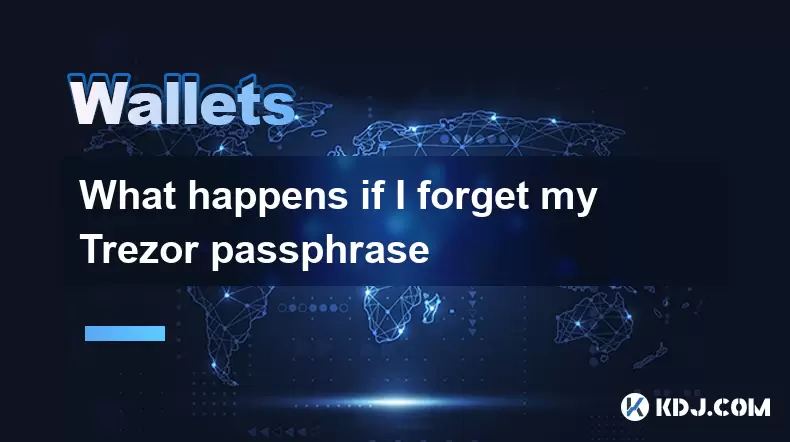
What happens if I forget my Trezor passphrase
Jul 09,2025 at 03:15am
Understanding the Role of a Trezor PassphraseIf you use a Trezor hardware wallet, you may have set up a passphrase as an extra layer of security beyon...
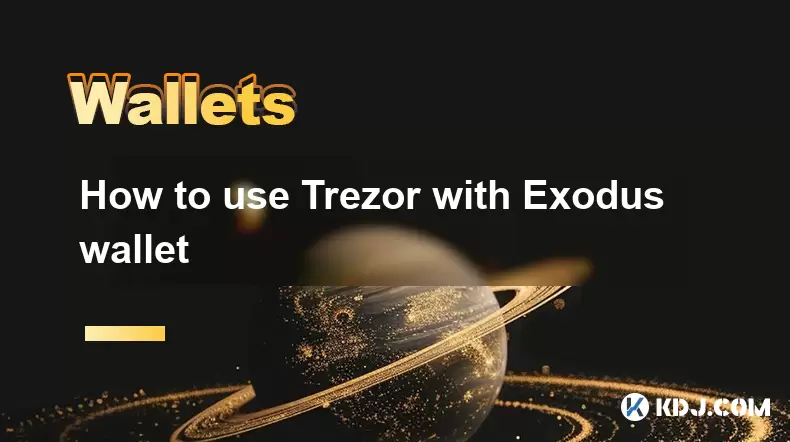
How to use Trezor with Exodus wallet
Jul 09,2025 at 12:49am
Connecting Trezor Hardware Wallet to Exodus Software WalletTo use Trezor with Exodus wallet, users need to connect the hardware wallet to the software...
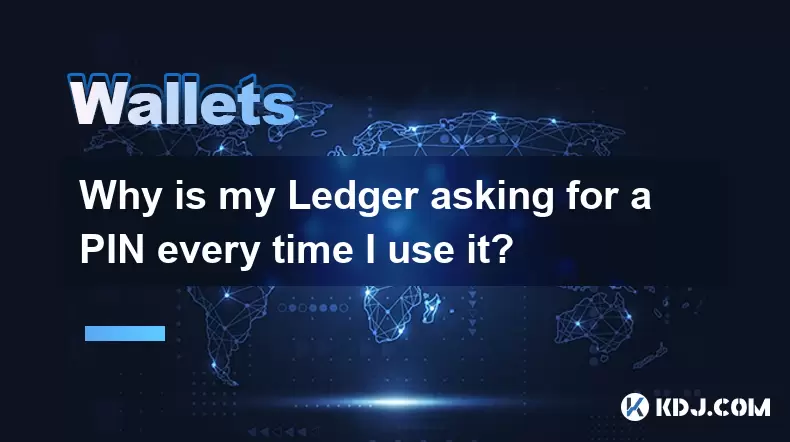
Why is my Ledger asking for a PIN every time I use it?
Jul 08,2025 at 11:21pm
Understanding the Purpose of the PIN on Your Ledger DeviceThe PIN (Personal Identification Number) is a crucial security feature built into every Ledg...
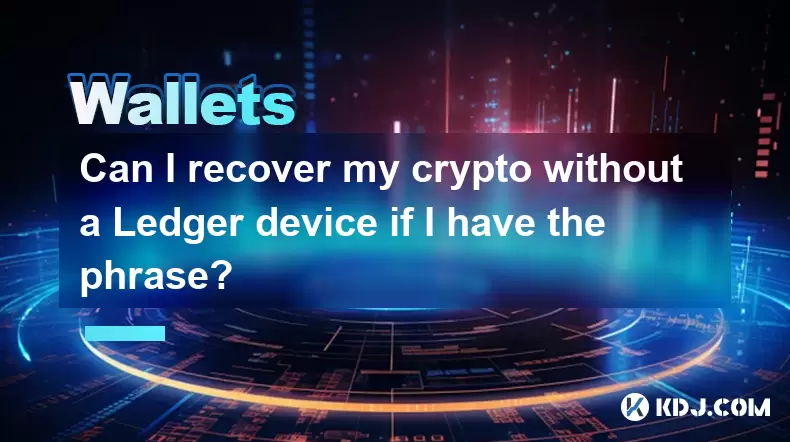
Can I recover my crypto without a Ledger device if I have the phrase?
Jul 09,2025 at 01:36am
Understanding the Role of a Recovery Phrase in Crypto SecurityIf you have your recovery phrase but no Ledger device, you might wonder whether it's pos...
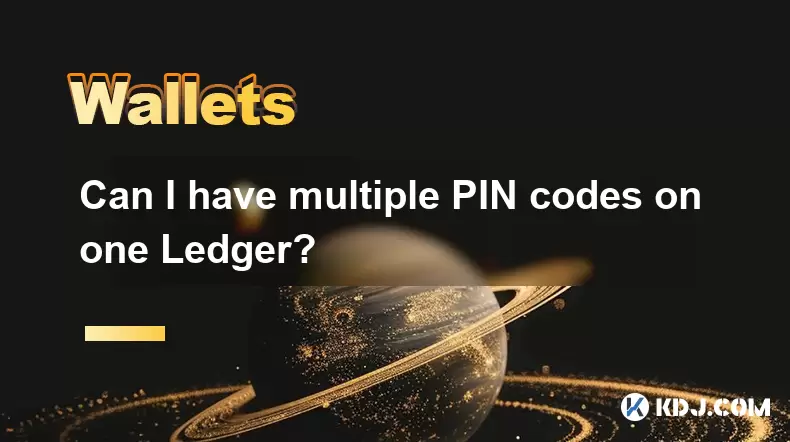
Can I have multiple PIN codes on one Ledger?
Jul 09,2025 at 12:35am
Understanding the Basics of Decentralized Exchanges (DEXs)A decentralized exchange, or DEX, is a type of cryptocurrency trading platform that operates...
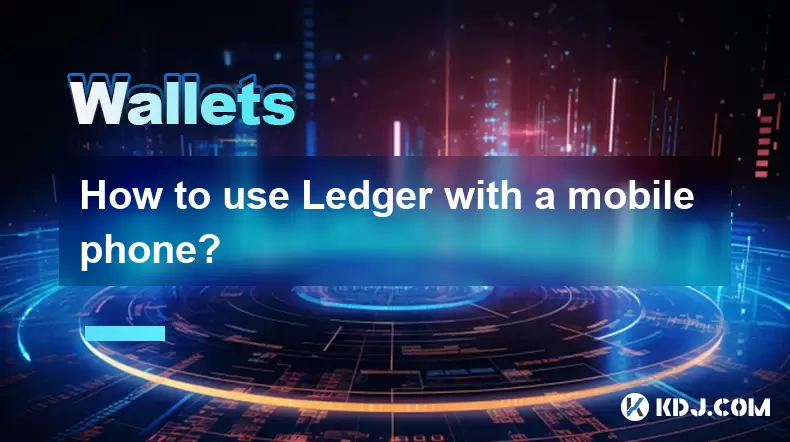
How to use Ledger with a mobile phone?
Jul 08,2025 at 10:49pm
Connecting Ledger Hardware Wallet to Mobile DevicesUsing a Ledger hardware wallet with a mobile phone provides a secure and convenient way to manage c...

What happens if I forget my Trezor passphrase
Jul 09,2025 at 03:15am
Understanding the Role of a Trezor PassphraseIf you use a Trezor hardware wallet, you may have set up a passphrase as an extra layer of security beyon...

How to use Trezor with Exodus wallet
Jul 09,2025 at 12:49am
Connecting Trezor Hardware Wallet to Exodus Software WalletTo use Trezor with Exodus wallet, users need to connect the hardware wallet to the software...

Why is my Ledger asking for a PIN every time I use it?
Jul 08,2025 at 11:21pm
Understanding the Purpose of the PIN on Your Ledger DeviceThe PIN (Personal Identification Number) is a crucial security feature built into every Ledg...

Can I recover my crypto without a Ledger device if I have the phrase?
Jul 09,2025 at 01:36am
Understanding the Role of a Recovery Phrase in Crypto SecurityIf you have your recovery phrase but no Ledger device, you might wonder whether it's pos...

Can I have multiple PIN codes on one Ledger?
Jul 09,2025 at 12:35am
Understanding the Basics of Decentralized Exchanges (DEXs)A decentralized exchange, or DEX, is a type of cryptocurrency trading platform that operates...

How to use Ledger with a mobile phone?
Jul 08,2025 at 10:49pm
Connecting Ledger Hardware Wallet to Mobile DevicesUsing a Ledger hardware wallet with a mobile phone provides a secure and convenient way to manage c...
See all articles

























































































